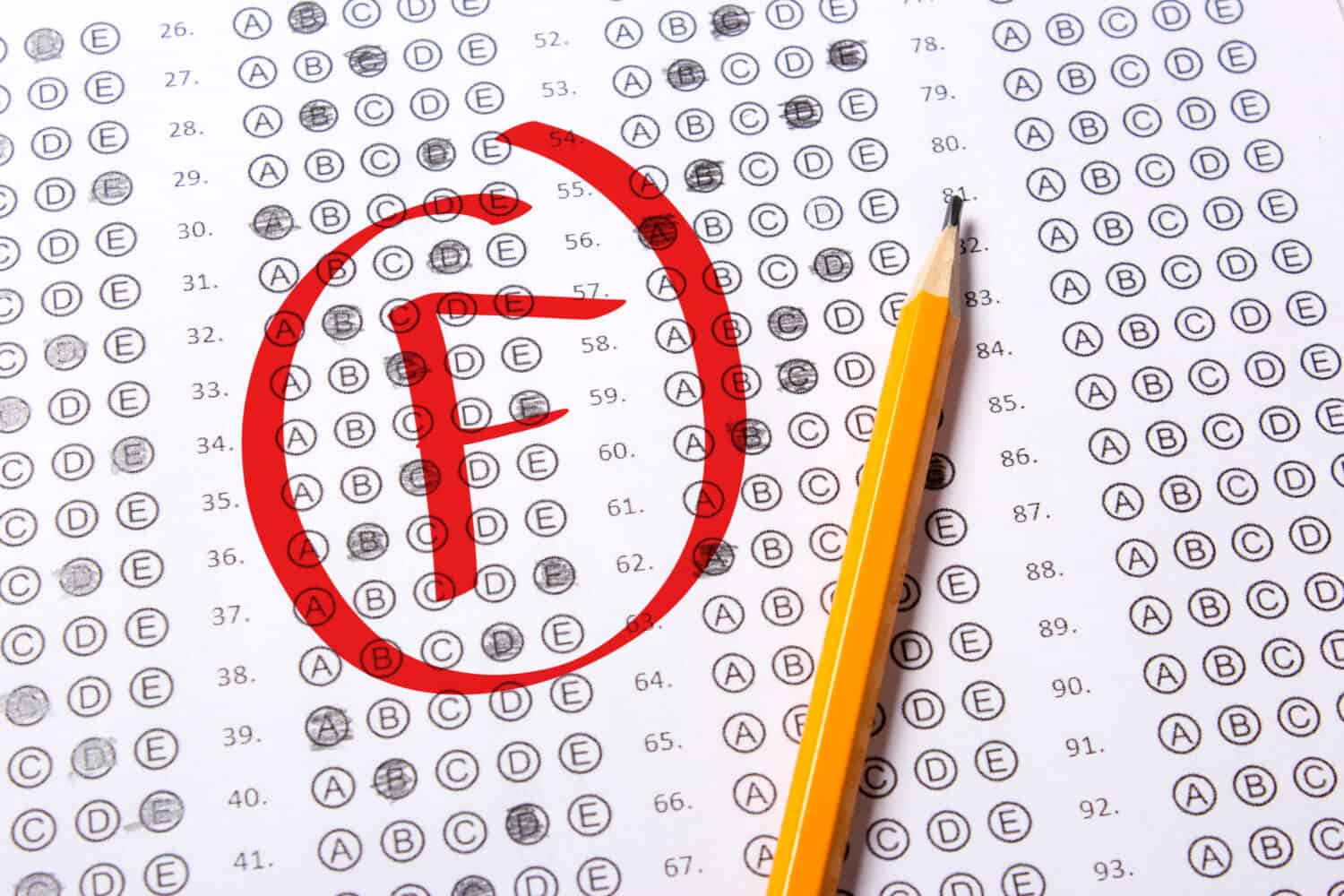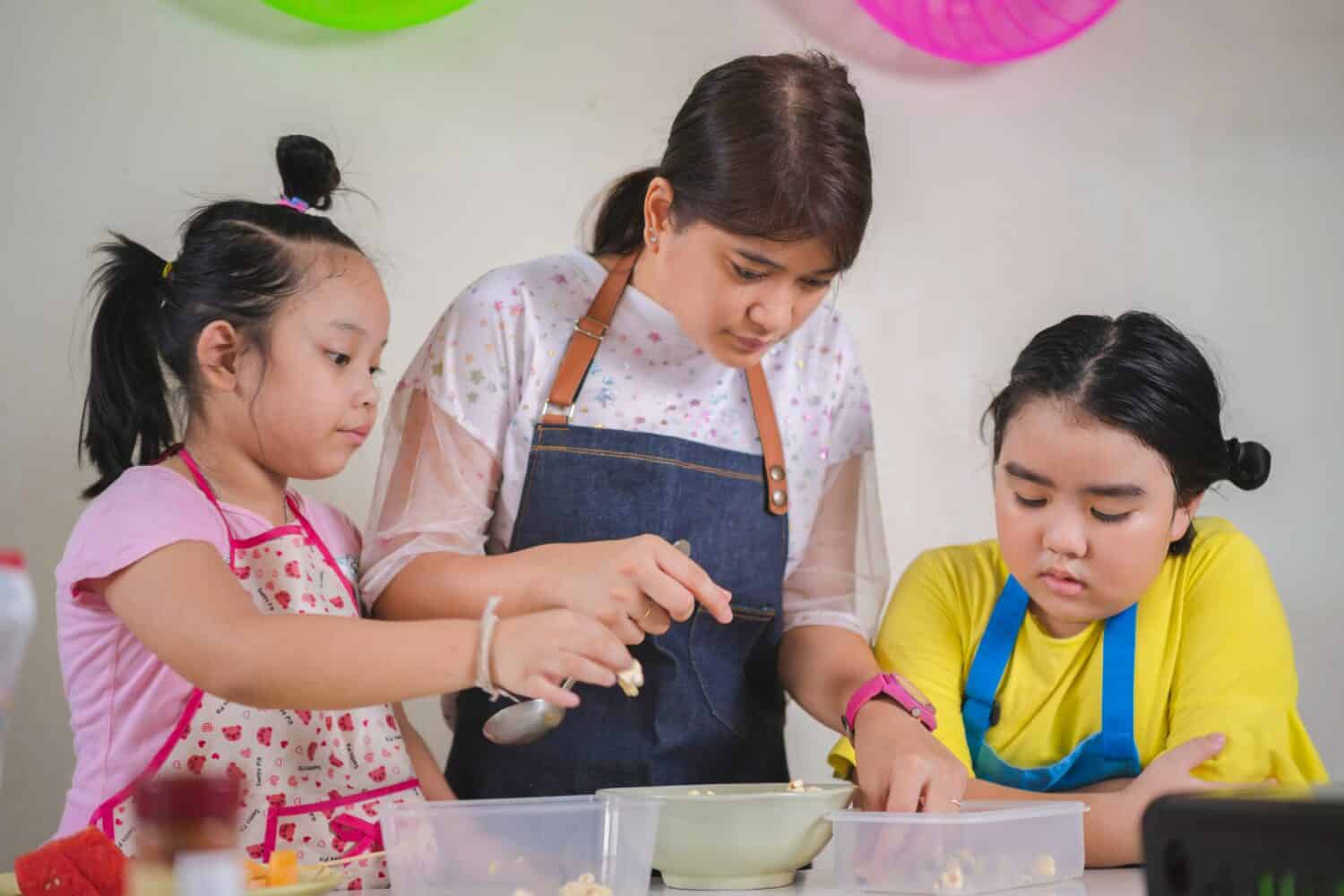Have you ever thought about the beginning of the public school system? How was it started and why? Well, one man, Horace Mann, helped start the United States government school system in the 19th century. While there were also other men who contributed, his conviction was that a society of uneducated people would be much like a “mad house without a keeper.” While plenty of good comes out of the public school system in America, one echoing concern can be heard across the country. Why aren’t basic life skills being taught in U.S. schools? On one side, plenty of people disagree with this statement, and others claim there isn’t enough time or resources to do these things.
On the flip side, you would be hard-pressed to find anyone who disagrees that there are several important skills that make life a whole lot easier. If children were taught these skills in school, would they have an easier time adjusting to adulthood?
If you went through the public school system, think back to your education. A few classes taught some basic life skills, at least in the school I went through. Many schools will teach the basics of psychology and touch on health and sex education. Many also will have optional cooking classes, child development, and more. However, most of the time, these classes are few and far between.
What is the Difference Between Knowledge and Skill?

©Jason Nemeth/Shutterstock.com
Thomas Jefferson once said, “Wisdom is knowing what to do next. Skill is knowing how to do it. Virtue is doing it.”
Schools are set up to teach knowledge. There are basic things everyone should know and learn. Reading, check. Math, check. History facts, check. Therefore, the school model may work for some children and some subjects. After all, everyone should have basic reading skills and math knowledge. However, there is a difference between knowing something and knowing how to do something. That in itself is the difference between knowledge and skill.
What About Skills That Require Experience?

©Mind_AND_I/ via Getty Images
Additionally, it’s important to remember that there are some areas in life where wisdom and skills only come with experience. A school cannot teach certain skills because they will not stick with the kids until they experience them themselves.
However, life changes rapidly. If you are an adult, it’s easy to look back on your childhood and realize that it is not the same one the kids today have. Values and goals have changed through the years and will continue to change. These basic life skills will become important as children age, making life and relationships easier and helping them make better decisions. Now, let’s take a look at several life skills that U.S. schools aren’t teaching, but probably should be.
Money Management

©zimmytws/Shutterstock.com
In America, only around 57 percent of adults are financially literate. This number is disheartening. Especially since money management is such an important part of adult life. To become financially literate, students should be taught:
- How to set a budget and stick with it
- Learn how to create an emergency fund
- What credit is and how to build it
- How to open a savings account
- What is investing?
- How to plan for retirement
- How to track expenses
Many adults in the United States are in financial crisis because they lack financial literacy. However, financial literacy is a skill that can be taught at any time. If students learn how to manage money while still young, they can save themselves the pain of making terrible mistakes with money and having piles and piles of debt.
How to Set and Maintain Goals

©RichVintage / Getty Images
One crucial life skill that should be taught in schools is setting and maintaining goals. Sure, homework and assignments could be a catalyst for this skill. On some level, this can work, especially if the child is highly motivated by grades.
However, many children only feel bogged down by the grading system. Therefore, learning how to set real-life goals they want to set (something they are excited about, like going on a trip or starting a business) can be a much bigger motivation.
It’s also easy to throw in the towel when we don’t meet our goals. Therefore, it is also important to learn how to maintain goals even if you don’t meet them the first time. It teaches resilience and encourages a growth mindset.
Gardening, Cooking, and House Skills

©ViDI Studio/Shutterstock.com
Some schools still do offer home economics classes; however, it is reported that there are only around 6,000 schools in the U.S. that still offer these classes. Beyond home economics, though, are skills lost several decades ago. Skills such as:
- How to start a garden
- Food safety
- How to cook meals from scratch
- Canning and preserving food
- How to iron clothing
- How to write a letter
- Carpentry
- Mechanical repairs
- Bartering
- Sewing
One of the best ways to learn these skills now is for them to be passed down from family to family.
Self-Defense

©maRRitch/Shutterstock.com
Self-defense is a life skill that everyone should know. It can help someone feel less vulnerable and know what to do if their life and safety are threatened. Individual self-defense and how to help protect those around you or in your care are equally important skills.
Skills Needed to Become an Entrepreneur

©Ermolaev Alexander/Shutterstock.com
The career and job landscape has changed drastically in the last several decades. Not too long ago, it was common to push going to college in order to find a career. However, today, more and more people are choosing to start their own businesses and find work outside of the “normal” spectrum, whether that is app developers, content creators, digital media trainers, or something else.
There are many learned skills that can help an entrepreneur. These include strategic thinking, problem-solving, resilience, how to market, and how to network.
Interpersonal Communication Skills

©Srdjan Randjelovic/Shutterstock.com
Interpersonal communication skills are a big life skill that U.S. schools do not teach. These skills are important to pretty much every area of a person’s life, including relationships within the house with a spouse or children. Additionally, interpersonal communication skills are important in a person’s workplace and even out in the community.
These skills include:
- Empathy
- Actively listening
- How to resolve conflict
- Emotional intelligence
- How to communicate verbally
- How to communicate nonverbally
- Written communication
These skills are needed to exchange thoughts and ideas between two or more people. They come in handy when conflict arises and can help people handle differences of opinions, behaviors, and attitudes.
Listening to Hear and Not Just Respond

©fizkes/Shutterstock.com
Along with interpersonal communication skills, knowing how to actively listen is an important skill. Listening to truly hear someone and not just respond can play an important part in building and maintaining relationships.
It’s human nature to think about how we will respond when talking to someone. Furthermore, many people relate their own stories when someone else is talking. However, these two ways of communicating can actually hinder a relationship. Therefore, learning how to listen while actually hearing and not just to respond is a valuable skill as an adult.
How to Manage Failure

©ADragan/Shutterstock.com
Failure is a part of life. However, in the United States school system, many students come out of school fearing failure. How does this happen? Being graded on a scale is great for the government and schools to understand where students need extra help. Additionally, it can give insight into if the schools are doing well with teaching a subject. However, if students fear falling below a certain grade level and deem themselves “failures,” something has gone amiss; these feelings can come from the school, peers, parents, or themselves.
To counteract the fear of failure, schools should equip students with the ability to manage failure. What happens if you fail at an area that you are passionate about? Should you just give up? How do you know when something just isn’t going to work? When is the right time to walk away from something? These are all important skills that come with learning how to manage failure.
The Ability to Adapt

©EF Stock/Shutterstock.com
In addition, adapting to changes can also be a vital skill for life. Nothing ever stays the same. Sometimes, the inability to adapt has more to do with personality types; other times, the skill was never encouraged. Either way, learning to adapt to changing situations is important in order to flourish in life.
However, being unable to adapt can keep you in a fixed mindset.
Creating a Resume and Searching for a Job

©kathayut kongmanee/Shutterstock.com
Creating a resume is something that is learned by doing consistently over time. Yet, the basic skills of how to create one and what to put on it (and what to leave off) can be taught in schools. Some schools do a great job of making sure students begin developing this skill.
Another important skill is not only what to put on your resume but also how to search for a job. How often should you be searching for one? What jobs are worth applying for, and how many applications should you submit a day? These are questions that everyone has once they enter the workforce. However, if these skills were taught in schools, then more people would feel confident as they begin their job search.
How to Manage Stress

©Cast Of Thousands/Shutterstock.com
Stress is a part of life. However, stress can also have a detrimental effect on our health, both physically and mentally. Stress is one of the triggers of anxiety, and unfortunately, the rate of people being diagnosed with anxiety in recent years has gone up.
Knowing how to manage stress is a skill that should be taught at an early age. It is essential for mental and physical health.
How to Become More Self-Aware

©Daenin/Shutterstock.com
Self-awareness seems to be a skill that some people were born with, and others never got. However, self-awareness is actually a skill that can be taught. It’s learning how to reflect on yourself without putting your guard up and becoming instantly defensive.
Self-awareness lets you determine what triggers you, why, how others see you, and more. This skill can be developed by asking others for feedback, resolving feelings that get pushed down, journaling, and more.
The problem comes when too many people in society lack self-awareness. Unfortunately, it is a skill that is only sometimes taught. If a person’s parents lack self-awareness, then there’s a greater chance that they will, too. However, the more self-aware a person is, the better their relationships, success in careers, families, etc.
Self-Care/Mental Health

©iStock.com/Prostock-Studio
In recent years, more research has been done about mental health. The more we learn about mental health, the more we learn that it’s an integral part of a person’s education. Learning what self-care is and how to take care of your own mental health is important. These skills can help a person learn how to stop putting themselves last, take care of their minds, and spot any signs that their mental health is at risk.
Unfortunately, there is a stigma about mental health that has not been fully dismantled. Many people have the mentality that mental health isn’t as important as physical health. Sometimes, people believe that ignoring any signs of an unhealthy mind is okay and sometimes necessary. However, the more open we are to the fact that mental health is important, and the more we teach it to our young children, the healthier their minds will be as they age.
Comprehensive Sex Education

©iStock.com/Rost-9D
Sexual education is sometimes a hot-button topic. Right now, only a few states mandate schools to teach this topic. Although it is a topic that gets a lot of heat, comprehensive sex education is very important. While parents should be the ones talking to their kids about these topics, there are many instances where this is not the case. Comprehensive sex education covers topics like:
- Sexual abuse
- Body image
- Contraception and pregnancy
- The anatomy of the body
- What puberty is
- What is menstruation
- Sexual orientation
- Sexually transmitted diseases
- Family and relationships
While the curriculum may vary depending on the school and state, sexual health gives students the ability to understand their bodies. When people have this knowledge, they understand relationships better. Studies have shown that when a student is introduced to sex education, they are more likely to put off participating in sexual activity. Additionally, they will be more likely to practice safe sex and understand their own health and sexual rights better.
Puberty can be a confusing time. Feeling more prepared and understanding what is going on with their bodies can help kids feel more confident and comfortable.
Survival Skills

©Ana Hollan/Shutterstock.com
Survival skills are things that we don’t necessarily think about. However, you never know what can happen in an instant. Knowing what to do in an emergency or unforeseen circumstance can be the difference between life and death. Survival skills that every person should know how to do include:
- How to build an emergency shelter
- How to find and purify water
- Foraging for food
- Water safety
- Building a fire
- Becoming aware of surroundings, practicing situational awareness
- Preparing a survival kit
- How to identify animal tracks
- How to identify plants that are edible or poisonous
While these are not the only survival skills that a child and adult should have, they are basic ones that should be taught.
One Last Note

©jittawit21/Shutterstock.com
The U.S. schools have plenty of strengths. However, when it comes to life skills, our students are missing significant opportunities that can prepare them for a bright future. The life skills on this list should be taught while young, whether by a parent or the school. Having knowledge about things like finances and sex education can help students feel more confident and make better decisions. Hands-on skills can also help students learn how to find a living, learn how to survive in a dangerous situation if needed, and more.
Although schools cannot teach everything, and some can’t be taught (only learned by experience), many students would benefit if these skills were touched on during their younger years.
The image featured at the top of this post is ©Xavier Lorenzo/Shutterstock.com.
